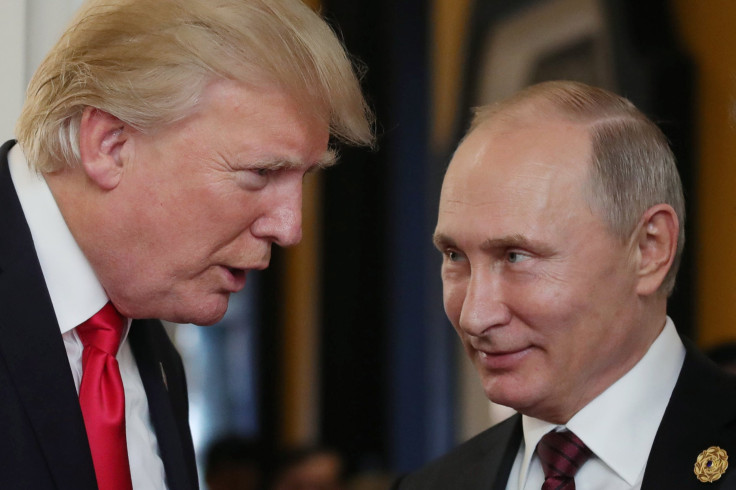US Media To Be Banned In Lower House Of Russian Parliament

The Russian State Duma plans to ban U.S. media organizations from entering the lower house of the Russian parliament, reports said.
The decision is being seen as retaliation to a decision by a committee that governs Capitol Hill access to withdraw credentials for Kremlin-funded Russian channel RT.
The channel's broadcast reporters will no longer be able to report daily from the U.S. Congress, Voice of America reported.
Announcing it on Dec.1, the head of the chamber's rules committee Olga Savastyanova said the Duma will discuss and adopt the proposal next week.
“Our committee plans to hold an extraordinary session at which we will consider a draft resolution” that would prohibit “journalists representing all American media” from entering the Duma, Savastyanova said, reported the Associated Press.
Currently, Russian parliament and other government agencies can be accessed by foreign media journalists with their press credentials issued to them by the Russian Foreign Ministry.
The new threat against American media outlets comes after a bill enabling the Russian government to designate any foreign media outlet a "foreign agent" was signed by Russia President Vladimir Putin on Nov. 25, ABC News reported.
Russia termed it a "symmetrical response" response after RT was required to register its U.S. operating unit under the U.S. Foreign Agents Registration Act (FARA) in earlier November.
The new law leaves it up to the Russian Justice Ministry to determine which foreign media outlets will be designated as foreign agents.
Targeted outlets include Radio Free Europe/Radio Liberty (RFE/RL), Voice of America (VOA), CNN, and German international broadcaster Deutsche Welle, Russian officials and lawmakers have indicated.
The legislation was condemned by the Human Rights Watch as a "full-throttle attack on media freedom" and said it was "tailor-made to be selectively and politically enforced, and to silence voices they do not want Russian people to hear."
In November, U.S. Justice Department required RT to register under FARA in the wake of a January finding by U.S. intelligence agencies that RT spread disinformation as part of a Russian-government effort to influence the 2016 U.S. presidential election.
Complying with FARA meant that the top officials of the news organization would have to register themselves with the Department of Justice and also surrender any personal data and documents when asked.
This was followed by RT's credentials being withdrawn after a unanimous vote of the executive committee of the Congressional Radio and Television Correspondents’ Galleries.
Craig Caplan, the chairman of the committee, wrote gallery rules “state clearly that news credentials may not be issued to any applicant employed by ‘any foreign government or representative thereof.’"
RT’s editor-in-chief Margarita Simonyan told the Hill after the withdrawal of credentials, “To all the self-righteous defenders of the 'freedom of speech' who oh-so-ardently proclaimed that FARA registration places no restrictions whatsoever on RT's journalistic work in the US: withdrawal of Congressional credentials speaks much louder than empty platitudes.”
© Copyright IBTimes 2024. All rights reserved.











